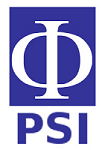THE BEST LABORATORY WORK TYPE TO IMPROVE HIGHER ORDER THINKING SKILLS AND SCIENTIFIC ATTITUDE
DOI:
https://doi.org/10.25273/jpfk.v8i2.10223Keywords:
Higher-order thinking skills, laboratory work, scientific attitudeAbstract
This study aims to determine the effectiveness of the comprehensive laboratory work (lab work) type which is the combinations of deductive, problem solving, and technical skills type in increasing the higher-order thinking skills (HOTS) and scientific attitudes as well as empirical testing the compatibility of this comprehensive type against higher HOTS and scientific attitudes. The study involved 100 students’ level two physics majors consisting of 4 randomly selected classes with cluster random sampling techniques. Scientific attitudes are measured by the scale of attitudes including indicators of curiosity, critical attitudes, and cooperation. HOTS are measured by tests that include analytical, evaluation and creating skills. This study is experimental research with the randomized Solomon four-group design. The effectiveness test of the comprehensive laboratory type in this study using the Nonparametric Kruskal Wallis test. Model match analysis is performed with the structural equation model (SEM). The results showed that there were significant differences in HOTS and scientific attitude score after the application of the comprehensive lab work type. The average student score taught with the comprehensive laboratory type is higher than that of students taught with the deductive type.
Downloads
References
Ahmad, S., Prahmana, R. C. I., Kenedi, A. K., Helsa, Y., Arianil, Y., & Zainil, M. (2017). The instruments of higher-order thinking skills. Journal of Physics: Conference Series, 943, 012053. Doi: https://doi.org/10.1088/1742-6596/943/1/012053.
Aktamiş, H., & Ergin, Ö. (2008). The effect of scientific process skills education on students’scientific creativity, science attitudes. Asian Fasific Forum on Science Learning and Teaching, 9 (1), 21.
Andersson, J., & Enghag, M. (2017). The relation between students’ communicative moves during laboratory work in physics and outcomes of their actions. International Journal of Science Education, 39(2), 158–180. Doi: https://doi.org/10.1080/09500693.2016.1270478.
Baharom, S., Khoiry, M.A., Hamid, R., Mutalib, A., & Hamzah, N. (2015). Assessment of psychomotor domain in a problem-based concrete laboratory. Journal of Engineering Science and Technology, 10 (10), 1-10.
Balta, N., Mason, A. J., & Singh, C. (2016). Surveying Turkish high school and university students' attitudes and approaches to physics problem-solving. Physical Review Physics Education Research, 12 (1). Doi: https://doi.org/10.1103/PhysRevPhysEducRes.12.010129.
Chiappetta, E.L., & Koballa T.R. (2010). Science Instruction in the Middle and Secondary Schools, Developing fundamental Knowledge and skill. USA: Pearson.
Dounas-Frazer, D. R., Van De Bogart, K. L., Stetzer, M. R., & Lewandowski, H. J. (2016). Investigating the role of model-based reasoning while troubleshooting an electric circuit. Physical Review Physics Education Research, 12(1). DOI: https://doi.org/10.1103/PhysRevPhysEducRes.12.010137.
Gleason, N.W. (2018). Higher Education In The Era of The Fourth Industrial Revolution Palgrave. Singapore: Macmillan.
Gok, T. (2014). Students’ Achievement, Skill and Confidence in Using Stepwise Problem-Solving Strategies. EURASIA Journal of Mathematics, Science & Technology Education, 10 (6). DOI: https://doi.org/10.12973/eurasia.2014.1223a.
Harlen, W., & Qualter, A. (2004). The teaching of science of primary schools. London: David Fulton Publisher.
Hopson, M.H., Simms, R.L., & Knezek, G.A. (2001). Using a Technology-Enriched Environment to Improve Higher-Order Thinking Skills. Journal of Research on Technology in Education, 34 (2), 109-119.
Heijnes, D., & van Joolingen, W. (2018). Stimulating Scientific Reasoning with Drawing-Based Modeling. Journal of Science Education and Technology, 27 (1), 45–56.
Hugerat, M., & Kortam, N. (2014).Improving Higher Order Thinking Skills among freshmen by Teaching Science through Inquiry. Eurasia Journal of Mathematics, Science & Technology Education, 10, 5, 447-454.
Husamah, Fatmawati, D., & Setyawan, D. (2018). OIDDE Learning Model: Improving Higher Order Thinking Skills of Biology Teacher Candidates. International Journal of Instruction, 11(2), 249-264. Doi: https://doi.org/10.12973/iji.2018.11217.
Joyce, B., Weil, M., & Calhoun, E. (2016). Models of Teaching. Yogyakarta: Pustaka Pelajar.
Kocakaya, S., & Kocakaya, F. (2014). A Structural Equation Modeling on Factors of How Experienced Teachers Affect the Students’ Science and Mathematics Achievements. Education Research International, 2014, 1-8. Doi: http://dx.doi.org/10.1155/2014/490371.
Kaushal, R. K., & Panda, S. N. (2019). A meta analysis on effective conditions to offer animation based teaching style. Malaysian Journal of Learning and Instruction, 16(1), 129-153.
Kosturko, L., McQuiggan, J & Sabourin, J. (2015). Mobile Learning: A Handbook for Developers, Educators, and Learners. New Jersey: John Wiley & Sons, Inc.
Kamarudin, M. Y., Yusoff, N. M. R. N., Yamat-Ahmad, H., & Ghani, K. A. (2016). Inculcation of Higher Order Thinking Skills (HOTS) in Arabic Language Teaching at Malaysian Primary Schools. Creative Education, 7, 307- 314. Doi: http://dx.doi.org/10.4236/ce.2016.72030.
Lee, V., & Lo, A. (2014). From theory to practice: Teaching management using films through deductive and inductive processes. The International Journal of Management Education, 12(1), 44–54. Doi: https://doi.org/10.1016/j.ijme.2013.05.001.
Louca, L. T., & Zacharia, Z. C. (2011). Modeling-based learning in science education: cognitive, metacognitive, social, material and epistemological contributions. Educational Review, 64, 471-492. Doi:10.1080/00131911.2011.628748.
Levy, Y., & Ellis, T.J. (2011). A Guide for Novice Researchers on Experimental and Quasi-Experimental Studies in Information Systems Research. Interdisciplinary Journal of Information, Knowledge, and Management, 6, 151-160.
Madhuri, G. V., Kantamreddi, V. S. S. ., & Prakash Goteti, L. N. S. (2012). Promoting higher-order thinking skills using inquiry-based learning. European Journal of Engineering Education, 37(2), 117–123.Doi: https://doi.org/10.1080/03043797.2012.661701.
Malone, K.L, Schunn, C.C., & Schuchardt, A.M. (2018). Improving conceptual understanding and representation skills through Excel-based modeling. Journal of Science Education and Technology, 27 (1) 30-44.
McHugh, C., & Way, J. (2018). What is Good Reasoning? Philosophy and Phenomenological Research, 96(1), 153–174. Doi: https://doi.org/10.1111/phpr.12299
Ozturk & Guven, T. & Bulent. (2016). Evaluating Students’ Beliefs in Problem Solving Process: A Case Study. EURASIA Journal of Mathematics, Science and Technology Education, 12. Doi: https://doi.org/10.12973/eurasia.2016.1208a.
Panneerselvam, M., & Muthamizhselvan, M. (2015). The Secondary School students in relation to Scientific Attitude and Achievement in Science.IOSR Journal of Research & Method in Education (IOSR-JRME), 5 (2), 5-08.
Palic, G., & Pirasa, N. (2012). A Study of Pre-service Teachers’ Tendency for Imprudent Behaviour and Physics Laboratory Attitudes. Procedia - Social and Behavioral Sciences, 47, 823–828. Doi: https://doi.org/10.1016/j.sbspro.2012.06.742.
Pitafi, A. I., & Farooq, M. (2012). Measurement of Scientific Attitude of Secondary School Students In Pakistan. Academic Research International 2(2), 379-382.
Richland, L. E., & Simms, N. (2015). Analogy, higher order thinking, and education: Analogy, higher order thinking, and education. Wiley Interdisciplinary Reviews: Cognitive Science, 6(2), 177–192. Doi: https://doi.org/10.1002/wcs.1336
Ryan, Q. X., Frodermann, E., Heller, K., Hsu, L., & Mason, A. (2016). Computer problem-solving coaches for introductory physics: Design and usability studies. Physical Review Physics Education Research, 12(1). Doi: https://doi.org/10.1103/PhysRevPhysEducRes.12.010105.
Ramos, J. L. S., Dolipas, B. B., & Villamor, B. B. (2013). Higher Order Thinking Skills And Academic Performance In Physics Of College Students: A Regression Analysis. International. Journal of Innovative Interdisciplinary Research, 4, 48-60.
Romine, W. L., Sadler, T.D., & Wulff, E.P. (2017). Conceptualizing Student Affect for Science and Technology at the Middle School Level: Development and Implementation of a Measure of Affect in Science and Technology (MAST). Journal of Science Education and Technology, 26 (5), 534-545.
Rubini, B., & Liliasari. (2013). Basic Natural Sciences Contribution for Scientific Attitude Development and Values of Life. International Journal of Science and Research, 2 (5), 465-468.
Saavedra, A. R., & Opfer, V. D. (2012). Learning 21st-Century Skills Requires 21st-Century Teaching. Phi Delta Kappan, 94(2), 8–13. Doi: https://doi.org/10.1177/003172171209400203.
Sell, R., Rüütmann, T., & Seiler, S. (2014). Inductive Teaching and Learning in Engineering Pedagogy on the Example of Remote Labs. International Journal of Engineering Pedagogy (IJEP), 4(4), 12.Doi: https://doi.org/10.3991/ijep.v4i4.3828
Valeriu, D. (2015). Factors Generating of Positive Attitudes Towards Learning of the Pupils. Procedia - Social and Behavioral Sciences, 180, 554–558. Doi: https://doi.org/10.1016/j.sbspro.2015.02.159.
Voronchenko, T., Klimenko, T., & Kostina, I. (2015). Learning To Live In A Global World: Project-Based Learning In Multicultural Student Groups As a Pedagogy of Tolerance Strategy. Procedia - Social and Behavioral Sciences, 191, 1489 – 1495.
Yaki, A.A., Saat, R.M., Sathasivam, R.V & Zulnaidi, H. (2019). Enhancing Science Achievement Utilising an Integrated Stem Approach. Malaysian Journal of Learning and Instruction, 16 (1), 181-205.
Zohar, A., & Alboher Agmon, V. (2018). Raising test scores vs. teaching higher order thinking (HOT): senior science teachers’ views on how several concurrent policies affect classroom practices. Research in Science & Technological Education, 36(2), 243–260. Doi: https://doi.org/10.1080/02635143.2017.1395332.
Downloads
Published
Issue
Section
License

Jurnal Pendidikan Fisika dan Keilmuan (JPFK) by http://e-journal.unipma.ac.id/index.php/JPFK/index is licensed under a Creative Commons Attribution-ShareAlike 4.0 International License.



















